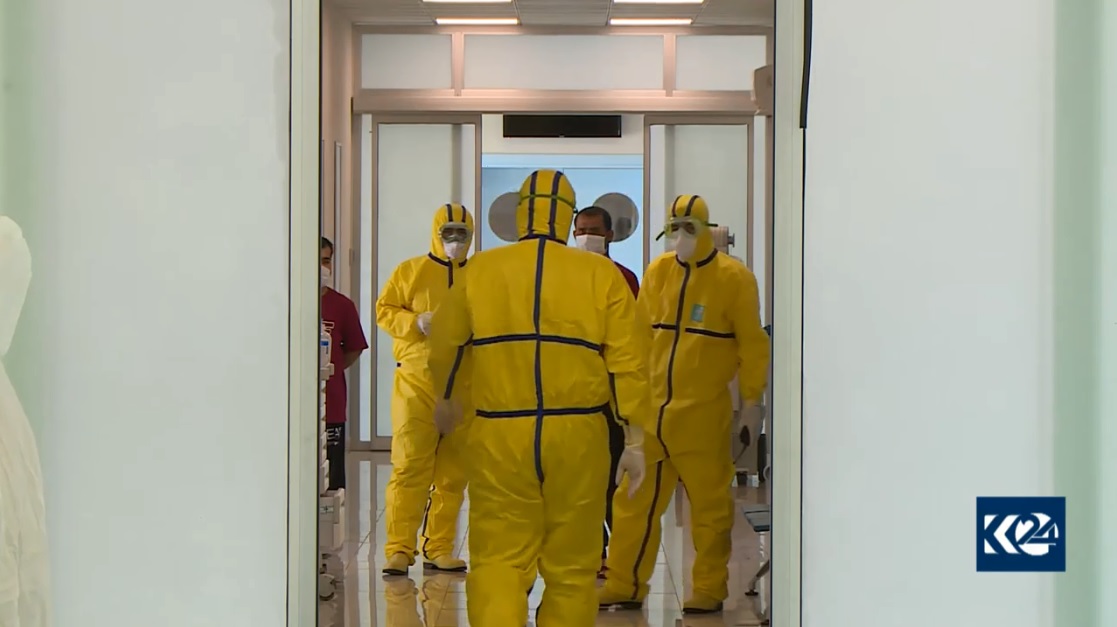Kurdistan Region virus cases near 50,000

ERBIL (Kurdistan 24) – The total number of coronavirus infections across the Kurdistan Region neared 50,000 on Friday, as the regional Health Ministry 640 more cases in 24 hours.
In its daily statement on the global health crisis in the autonomous region, the ministry said it had completed 4,996 tests across the four provinces within its jurisdiction in the past day, 640 of which were positive.
The official statement also noted that there had been 21 deaths during the same period: 11 in Sulaimani province, eight in Duhok, and two in Erbil.
There have now been over 49,000 coronavirus infections in the Kurdistan Region, 1,791 of them fatal, since the first case was confirmed there in early March.
So far, around 31,158 patients are reported to have recovered from the highly contagious disease. It is important to note that a patient classified as a “recovery” means they are no longer being actively treated by health professionals, not that they have fully recovered.
Increasingly, medical experts recognize that some COVID-19 symptoms, such as chronic fatigue, often continue long after an individual’s formal recovery and that various other complications, including significant lung damage, could be permanent.
Kurdistan Region Prime Minister Masrour Barzani, in his cabinet meeting on Wednesday, addressed the spiking numbers of infections and deaths in the region and asked both government authorities and residents to adhere to strict health measures.
On Wednesday, Erbil province’s blood bank urged the COVID-19 recoveries to donate plasma, particularly the blood type A.
The bank urged the coronavirus recoveries to donate their plasma that could be a last attempt to “restore hope” to a severe COVID-19 patient.
Convalescent plasma is a new therapeutic method being used to treat severe cases of coronavirus where the antigen is extracted from a recoveree’s blood and transfused into the blood of the patient.
The Kurdistan Region and Iraq have been recording an increasingly higher number of cases in recent months amid relaxed lockdown measures and tough economic conditions.
Editing by Khrush Najari
